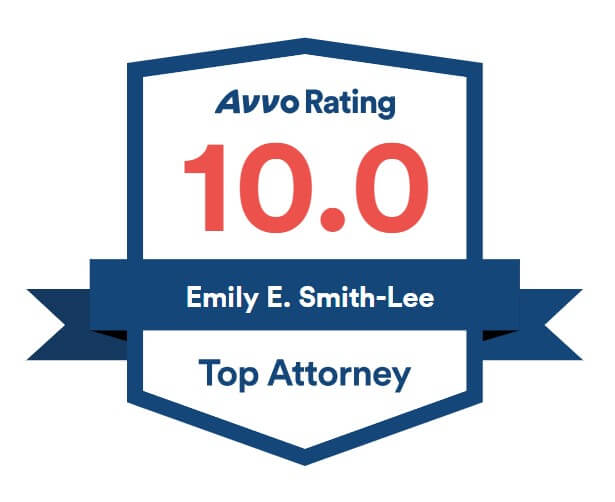What is Intentional Interference With Contract in Massachusetts?
Understanding Tortious Interference with ContractsIn the competitive world of business, interactions between competitors can sometimes cross the line into actionable territory. In Massachusetts, the legal concept of "tortious interference with contract" plays a crucial role. As a business owner, it's vital to distinguish between fair competition and actions that might lead to claims of tortious interference or unfair competition. Below are the elements of a claim for tortious interference, and some key considerations.
Requirement 1: An Existing or Prospective Contract or Economic RelationshipTo initiate a claim, there must be an existing or potential contract or economic relationship with a third party. This relationship can take various forms, from formal contracts to oral agreements, ongoing business dealings, or even prospective relationships that haven't solidified into contracts. This often pertains to customer relationships but can also extend to agreements with former employees.
Requirement 2: Intentional InterferenceTo establish a case, you need to demonstrate that someone's actions intentionally disrupted your contractual relationship. This involves proving that the defendant knew about the relationship and intended to interfere with it. Direct communication with the third party or actions hindering their business dealings with you are examples of intentional interference.
Requirement 3: Improper Means or MotiveThe defendant's conduct must involve either an improper motive or wrongful actions. Economic motivations, such as competition, are generally considered proper. Improper motives might include personal grudges or attempts to gain leverage in other disputes. The critical factor is often whether the means of interference were improper. Improper means may include misrepresentation, breaches of contract, or breaches of fiduciary duty.
Requirement 4: Breach of Contract or Loss of RelationshipFor contract interference claims, you must prove that the defendant's actions induced a breach of the contract. Unsuccessful interference attempts won't support a claim. In cases of interference with prospective economic relationships, you must demonstrate the loss of that relationship. This can be more complex than proving the loss of a specific contract, especially when prospective customers are involved.
Intentional Interference in the Employment ContextIt's important to note that claims for interference with contractual relations generally don't apply in the employment context in Massachusetts. This is because one cannot interfere with their own contract. However, there are exceptions, such as individuals within a company wrongfully interfering with another employee's status.
Intentional Interference and Non Compete AgreementsWhen an employee moves to a competitor, the former employer may attempt to enforce a non-compete agreement against them. In such cases, analyzing the improper means test is crucial. The new employer's motive is typically economic and therefore not improper. They usually have no direct relationship with the former employer and no fiduciary duty. Liability for interference hinges on whether the new employer engaged in wrongful actions, such as making false representations or improperly accessing information. Simply hiring someone subject to a non-compete typically doesn't constitute interference.
|
We're Here to Help.OR
|
Questions About Interference With a Contract or Business Relationship?
Our Solutions Roadmap is a quick and easy way to share the details of what you are facing and receive preliminary feedback from a member of our team. Use the button below to get started- it is 100% confidential and 100% free.
Meet Our Business Attorneys

Emily Smith-Lee is the owner and founder of slnlaw. She is a 1996 graduate of Boston College Law School. She was previously a partner at the Boston office of a large international firm, where she worked for thirteen years with a focus on business litigation. In 2009, she started the firm that since became slnlaw, and has grown it from a solo practice to a five-attorney firm with multiple practice areas. She has been recognized as Massachusetts Superlawyer each year since 2013, and in 2018 earned recognition as one of Massachusetts Lawyers Weekly's Lawyers of the Year. She has written a book on employment law: Rules of the Road, What You Need to Know About Employment Laws in Massachusetts, and helped hundreds of small business owners with contracts, business transactions, employment law advice, business incorporation, and risk management. She has also litigated business disputes in state and federal courts.

Rebecca Rogers: Rebecca is a 2006 graduate of Boston College Law School, and has worked with slnlaw since 2013. She previously worked as an intellectual property litigation attorney for Fish & Richardson in Boston, Massachusetts, and clerked for the Massachusetts Supreme Judicial Court. Rebecca has helped clients with business contracts, employment contracts, and employment law advice.

Jenna Ordway: Jenna is a 2013 graduate of Quinnipiac Law School, and also earned an LLM in Taxation from Boston University in 2015. She has been affiliated with slnlaw since 2011, first as a law clerk and then as an attorney. Jenna has been recognized since 2019 as a "Rising Star" by Massachusetts Superlawyers. Jenna has helped many small business owners with simple and complex business incorporation, contract review, advice and analysis regarding business disputes, employment law advice, and advice about business succession considerations as part of estate planning.

Elijah Bresley: Eli is a 2014 graduate of Seton Hall Law school, and has worked with slnlaw since 2020. He previously worked for a boutique employment law firm outside of Boston, and then for the Labor and Employment department of a large Boston firm. He also spent a year clerking for the judges of the Superior Court in Hartford, Connecticut. Eli has helped our small business clients with employment law advice and defense of employment-related lawsuits in MCAD and state and federal courts.

Sharleen Tinnin: Sharleen is a 2010 graduate of Northeastern University School of Law, and has been with slnlaw since 2023. Prior to joining slnlaw, she worked with King, Tilden, McEttrick & Brink, P.C. on complex civil litigation matters. She previously worked for the United States Department of Justice, and received an "Excellence in Justice" award in 2017. Sharleen has helped clients litigate business disputes in state and federal courts, and advised business owners about succession considerations as part of their estate planning.
How We Can Help
Our experienced legal team is here to provide guidance and support in cases involving tortious interference with contracts. We'll help you navigate the complexities of business disputes and protect your interests. You can use the button below to schedule a call back from a member of our team, or give us a call at 781-784-2322.
|
Emily Smith-Lee Rated by Super Lawyers loading ... |
Jenna Ordway
Rated by Super Lawyers loading ... |


